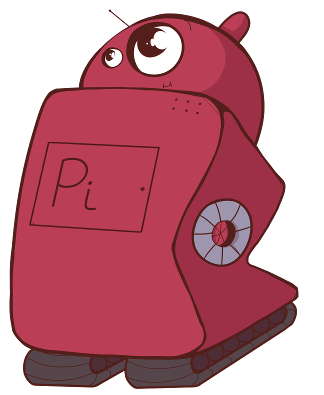Brian Corteil
How not to build a Pi Wars winning robot!
After winning the Advanced category of Pi Wars twice, Brian Corteil who runs Coretec Robotics had to come up with something new to impress us. So in 2019 he built the crazy, wonderful, self-balancing robot Faceplant for which he received the Judge's technical award.
"I failed, because my goal was to make a robot that couldn't possibly win anything," Brian told us at Makespace where he hosts the monthly Robot Club.
Three years ago, Brian previously talked on the topic of "How to build a Pi Wars winning robot". So it only seemed right, given his recent experience, to have him as our keynote speaker, presenting on the topic of "How NOT to build a Pi Wars winning robot".
We're also hoping that he'll bring his "Micro Pi Noon" arena with him so we can play some games in the breaks...


